Denmark Last Name Origin, History, and Meaning
Where did the surname Denmark come from? What does the surname Denmark mean? Discover the history and meaning of the last name Denmark and family migration on YourRoots Map.
Surname Denmark Origin: What does the last name Denmark mean?
The surname Denmark is of Scandinavian origin, with records dating back to the early 8th century in Denmark. It has remained closely associated with Denmark throughout history, spreading to countries like England by the 12th century. By the 20th century, the Denmark surname had widespread presence in Denmark and the United States, where it remains prominent today.
YourRoots data confirms the Denmark surname's global spread, with records found in countries such as England, reflecting its significant presence over the centuries. The surname Denmark carries a rich history and continues to be prominent in various countries, showcasing its enduring legacy and widespread reach.
Denmark Last Name History: Where did the last name Denmark come from?
Origin of Denmark Surname: Where does the last name Denmark originate from?
According to YourRoots data, the surname Denmark first appeared in records from Denmark around the early 8th century. Please note that this reflects only YourRoots data for the exact Denmark spelling and does not include other record sources or surname variations.
History of the Last Name Denmark: What does the Denmark surname history look like in the early days?
The Denmark surname remained closely associated with Denmark from the 8th to the 12th centuries. YourRoots data also shows Denmark family records in countries like England, indicating global spread over the centuries.
Global Spread: Where can we find the Denmark surname today?
By the 20th century, the volume of records with the Denmark surname grew significantly in Denmark and the United States. The Denmark surname remains prominent in the United States. It appears in many countries, including England, reflecting its widespread presence.
Explore Denmark last name heritage and Denmark surname origin based on YourRoots Map data
 VIEW THE ORIGIN OF SURNAME DENMARK
VIEW THE ORIGIN OF SURNAME DENMARKFamous People With Denmark Surame?
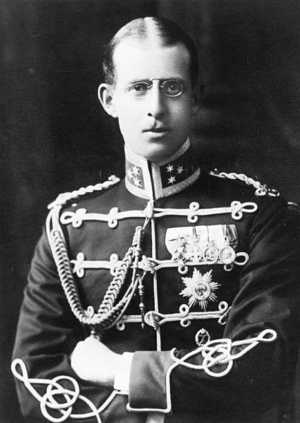
Prince Andrew of Greece and Denmark
Prince Andrew of Greece and Denmark (Feb 2, 1882 – Dec 3, 1944) was a member of the Greek and Danish royal families. He served in the military, saw action in the Balkan Wars, and later in the Greco-Turkish War. He was the father of Prince Philip, Duke of Edinburgh, and married Princess Alice of Battenberg. Despite his military career, Andrew faced exile multiple times and was estranged from his wife and son during World War II. His descendants include members of European royalty and British nobility, making him a significant figure in European history.
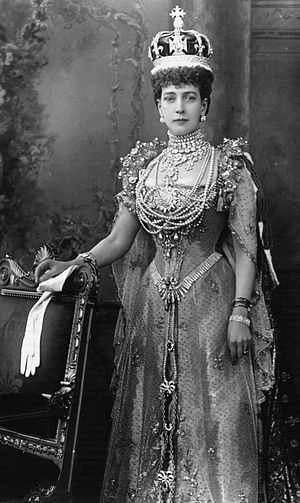
Alexandra of Denmark
Alexandra Caroline Marie Charlotte Louise Julia of Denmark (Dec 1, 1844 – Nov 20, 1925) was Queen of the United Kingdom and Empress of India as the wife of Edward VII. Born into a modest royal family, she became known for her fashion sense and charitable work as Princess of Wales. Despite being excluded from political power, Alexandra influenced British ministers and promoted Greek and Danish interests. After her husband's death, she became queen mother until their son George V took the throne. Alexandra's devout nature and high church practice defined her life, leaving a lasting legacy in British royalty.
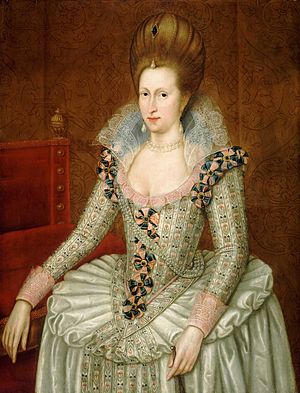
Anne of Denmark
Anne (Anna) of Denmark (12 Dec 1574 - 2 Mar 1619) was the Queen of Scotland and later England and Ireland as the wife of King James VI and I. Known for her independent streak and patronage of the arts, Anne had three children who survived infancy, including Charles I. Despite reports of a strained relationship with James, Anne's assertive independence and cultural contributions have been recognized in recent reappraisals. Born in Denmark, Anne was betrothed to James at a young age and sailed to Scotland to marry him, facing misadventures along the way.
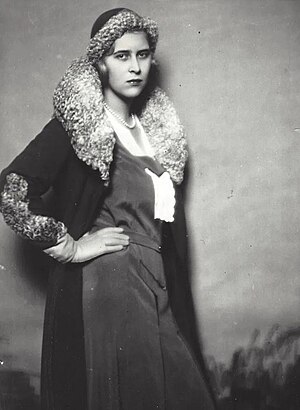
Princess Sophie of Greece and Denmark
Princess Sophie of Greece and Denmark (Sophia, 26 Jun 1914 – 24 Nov 2001) was a Greek and Danish princess known for her royal lineage and connections to the British monarchy. As the elder sister of Prince Philip, Duke of Edinburgh, she was linked to the Nazi regime during World War II but later turned against Nazism. Despite facing personal tragedies, Sophie led a discreet life, focused on reading, music, and gardening. She passed away in 2001, leaving behind a legacy tied to European royalty.
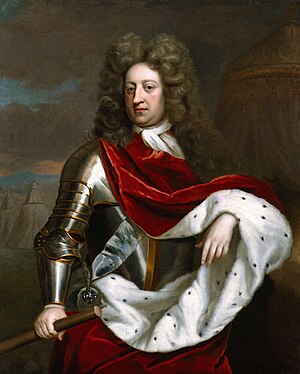
Prince George of Denmark
Prince George of Denmark (April 2, 1653 – October 28, 1708) was the husband of Queen Anne of Great Britain and Duke of Cumberland. He played a key role in developing an Anglo-Danish alliance to counter Dutch maritime power. Despite facing challenges from his brother-in-law, William III, Prince George supported his wife during her reign, even with differing views. Known for his easy-going manner and lack of political interest, he held honorary titles like Lord High Admiral of England during Anne's rule. The couple faced personal tragedies with multiple miscarriages and infant deaths but maintained a strong marriage until his death from lung disease at age 55.
All images displayed on this page are sourced from Wikipedia or Wikimedia Commons.We use these images under their respective Creative Commons or public domain licenses. Wherever applicable, author attributions and license information are provided. If you believe an image is used incorrectly or outside its license terms, please contact us so that we can review and correct the issue.




.png)